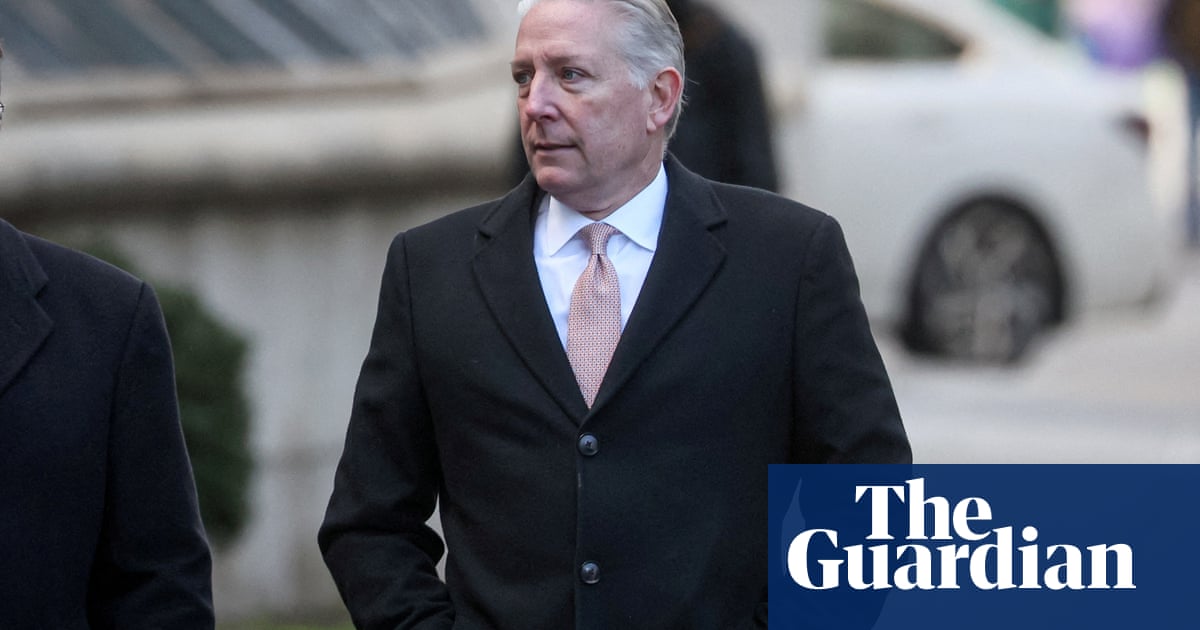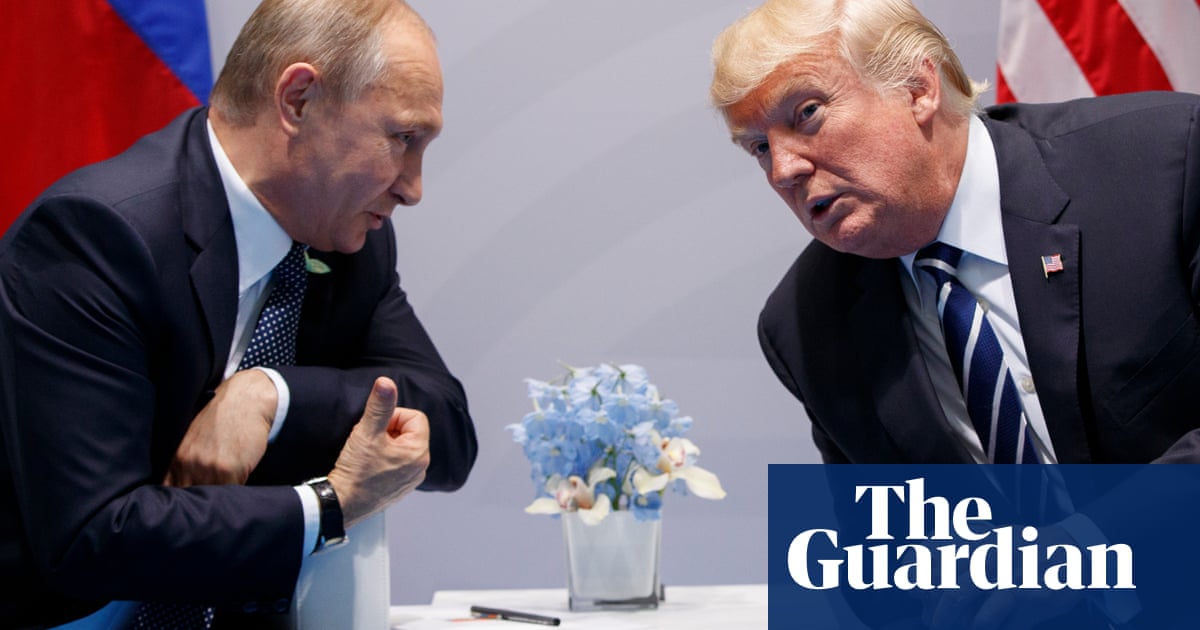The conflict with Armenia is over - Hikmet Hajiyev ... Former FBI spy hunter gets prison time for giving information to Russian oligarch ... Blinken Says, West Will Prove Putin 'Wrong Again'
Michael Novakhov's favorite articles

The conflict with Armenia is over - Hikmet Hajiyev
Baku/21.12.23/Turan: Azerbaijan sees no serious obstacles to concluding a lasting peace treaty with Armenia and believes that the issue of defining their borders can be resolved separately, Hikmet Hajiyev, Assistant to the President for Foreign Policy, said this on December 19 in London.
"The 35-year conflict is over," Hajiyev told reporters in London. "Azerbaijan's strategy now is to achieve peace and this requires steps from both sides. There are no more obstacles on the way to a peace agreement for Azerbaijan," he said.
Hikmet Hajiyev visited London this week, where he held meetings at the British Foreign Ministry and gave interviews to British media. -02D-

A former FBI special agent who led a counterintelligence division was sentenced to more than four years in prison on Thursday for providing information to a Russian oligarch, in violation of US sanctions.
Charles McGonigal, 55, is one of the highest-ranking FBI officials to ever be convicted of a crime. He spent 22 years at the FBI before retiring in September 2018, leading investigations into the 2010 release of state department classified cables by WikiLeaks, and a hunt for a suspected Chinese spy working as a mole in the CIA.
But in 2021, after he had retired, McGonigal supplied information to the Russian oligarch Oleg Deripaska to help him sink a business rival. Deripaska had been placed on a US sanctions list in 2018, and was attempting to gather information to get a competitor placed on the sanctions list as well.
McGonigal received a payment of $17,500 for doing so, laundered from a Russian bank to Cyprus to a business bank account in New Jersey and then to McGonigal’s private account.
McGonigal was arrested in January 2023 and indicted on nine charges. In August, he pleaded guilty to one charge to avoid the other eight – namely, conspiring to violate US sanctions and laundering payments.
On Thursday he was sentenced to 50 months in prison and fined $40,000. The judge for the southern district of New York, Jennifer H Rearden, said her sentence was meant to balance McGonigal’s 22 years of FBI service with the “extremely serious” nature of his crimes, which she said imperiled national security.
“Charles McGonigal violated the trust his country placed in him by using his high-level position at the FBI to prepare for his future in business. Once he left public service, he jeopardized our national security by providing services to Oleg Deripaska, a Russian tycoon who acts as Vladimir Putin’s agent,” said Damian Williams, a US attorney, in a statement on the sentencing.
“Today’s sentence is a reminder that anyone who violates United States sanctions – particularly those in whom this country has placed its trust – will pay a heavy penalty.”
McGonigal also faces a second sentencing in Washington DC early next year, after he also pleaded guilty to hiding $225,000 in payments from a former Albanian intelligence officer.

Blinken Says, West Will Prove Putin 'Wrong Again'
The United States said on Wednesday it will continue to unite countries around the world to support Ukraine’s freedom and independence, and ensure that Russian aggression remains a strategic failure, as the top U.S. diplomat put it, TURAN's Washington correspondent reports from the State Department.
"Putin is betting that our divisions will prevent us from coming through for Ukraine. We have proven him wrong before; we will prove him wrong again," Secretary of State Antony Blinken told reporters at a year-end press conference.
Putin, he explained, "thinks his strategy of waiting us out while sending wave after wave of young Russians into a meat grinder of his own making will pay off."
"On one and only one point, I agree with Putin: America’s ongoing support is critical to enabling Ukraine’s brave soldiers and citizens to keep up their fight, to ensure that Russia’s war remains a strategic failure, and to continue helping Ukraine move toward standing strongly on its own two feet militarily, economically, and democratically," Blinken added.
As the world heads into 2024, Blinken said the U.S. will continue to stand shoulder-to-shoulder with "those who share our vision" for a free, open, prosperous and secure world, "because that’s what delivering for the American people demands."
He went on to elaborate: "Putin has already failed to achieve his principal objective in Ukraine: erasing it from the map, subsuming it into Russia... It’s been a hard year on the battlefield, but, once again, Ukrainians have done what no one thought was possible: They stood toe to toe with one of the world’s biggest militaries, they conceded no territory despite multiple Russian offensives, and they pushed Russia’s navy back in the Black Sea and opened a corridor to allow them to export their grain and other products to the world."
Russia, Blinken said, is weaker militarily, economically, diplomatically. NATO is bigger and stronger and more united than at any point in its nearly 75-year history.
"This year, we added our 31st member of NATO – Finland. And Sweden will join soon, bringing even greater potency and capability to our defensive alliance," he reminded.
Blinken devoted much of his time on the podium to rallying the Congress and countries around the world to continue supporting Ukraine's freedom and independence, and underscoring the importance of ending the Israel-Hamas war as quickly as possible.
"Here’s who benefits if Congress passes this supplemental: our fellow citizens, our businesses, our workers, our allies and partners, people around the world who are looking to the United States to lead. Here’s who cheers if we fail: Moscow, Tehran, Beijing. If we come up short, it won’t be our adversaries and competitors who stopped us. It will be ourselves," he said.
On the war in the Middle East that erupted in October. Blinken said, "We continue to believe that Israel does not have to choose between removing the threat of Hamas and minimizing the toll on civilians in Gaza."

When this information was disseminated in the press, I immediately contacted the law enforcement agencies, focusing on human rights related issues. Anahit Manasyan, the Human Rights Defender (ombudsperson) of Armenia, told this to reporters after Thursday’s Cabinet meeting of the government—and regarding the incident that happened a day ago, when, according to human rights organizations, the military police of the Russian 102nd Military Base in Gyumri, Armenia arrested Russian citizen Dmitry Setrakov and then transferred him to Russia.
To the question whether these Russian policemen’s arresting of people in Armenia is a violation of human rights, Manasyan responded: "At the moment, I have not yet received complete information regarding the matter. For example, was the person transferred to Russia? Under what process did this happen? But if a matter related to human rights is recorded, in a specific context, we will certainly intervene."
The Vanadzor office of the Helsinki Civil Assembly had reported on December 8 that the representatives of the Russian 102nd Military Base had arrested Russian citizen Dmitri Setrakov, living in Gyumri, on a street. And later it became known that he was transferred to Russia, where he is accused of desertion.
In turn, the Prosecutor General’s Office of Armenia had stated that it did not receive, discuss, and ranted a petition to detain, arrest, and hand over Setrakov to the respective authorities of Russia. It added that it does not have information regarding the search for Dmitry Setrakov by the relevant authorities of Russia, as well as his detection in Armenia.

Vladimir Putin has had Donald Trump’s “number for some time … knows how to manipulate him” and still sees him “as an asset”, the former White House Russia expert Fiona Hill said, discussing the Russian leader and the Republican presidential frontrunner.
“That’s literally [Putin’s] trump card,” Hill told the One Decision Podcast, hosted by the reporter Jane Ferguson and Sir Richard Dearlove, a former head of MI6, when asked if she thought the Russian president, bogged down in war in Ukraine, was betting on Trump beating Joe Biden next year and returning to power.
Hill added: “The anticipation that Trump’s going to come back is something for Putin of a boon … he can play with that. He can use it as kind of a warning … scare the Ukrainians, the Europeans, the rest of the world. Putin is pretty confident, given his experiences with Trump in the past, that Trump will be quick to try to resolve the … war in Ukraine in his favor.
“And, you know, obviously, Putin has had Trump’s number for some time, he knows how to manipulate him … he has been very good at the art of flattery with Trump. He sees Trump as an asset in many respects.”
From 2017 to 2019 Hill was a senior national security aide in the Trump White House, eventually coming under the spotlight as a witness in Trump’s first impeachment, for seeking to blackmail Ukraine for dirt on political rivals. In 2013, she published Mr Putin: Operative in the Kremlin, a widely praised study.
Though Hill made her name in Washington foreign policy circles she was born and raised in the north-east of England, attending St Andrews University in Scotland before studying at Harvard.
Joe Biden has led a global coalition in support of Ukraine but US funding for Kyiv is currently held up in Congress, Republicans loyal to Trump demanding hardline immigration measures in return for more aid. On Wednesday Punchbowl News, which reports on Capitol Hill, noted the “growing isolationist wing” of the Republican party, notably including the installation of a Trump ally, Mike Johnson, as House speaker.
“Washington has cooled on Ukraine,” it said.
Hill said Putin increasingly sensed a chance to end the war in his favour.
“Myself and many other colleagues are already getting little feelers being sent out to see whether the United States and the west are ready to negotiate,” Hill said, adding that this “suggests that Russia would like to see this ended, but … completely on Putin’s terms: no return of territory, the opportunity to put pressure on Ukraine over the longer term and certainly no reparations.”
Now chancellor of Durham University, Hill is also a member of the board of overseers at Harvard and a senior fellow at the Brookings Institution in Washington. On the One Decision Podcast, she also discussed her well-received memoir, There Is Nothing For You Here, which was published two years ago, famously prompting Trump to call her “a deep state stiff with a nice accent”.
Trump and Putin have been entangled on the world stage ever since Trump entered US politics in 2015, amid warnings of Russian interference in American elections. In 2018, Trump was widely criticised for a subservient display at a summit with Putin in Helsinki. In 2019 a special counsel investigation of Russian election interference and links between Trump and Moscow ended with multiple indictments and extensive evidence of attempted obstruction by Trump but no proof of collusion.
Widely seen as an aspiring autocrat, Trump regularly praises Putin and other authoritarian leaders.
In New Hampshire last week, Trump told supporters: “Putin of Russia says that Biden’s … ‘politically motivated persecution of his political rival’ is very good for Russia because it shows the rottenness of the American political system, which cannot pretend to teach others about democracy.’ So we talk about democracy, but the whole world is watching the persecution of a political opponent that’s kicking [Biden’s] ass.”
Trump has pleaded not guilty to 91 criminal charges under four indictments and also faces assorted civil cases and a ruling in Colorado kicking him off the ballot for inciting the January 6 insurrection. Regardless, he leads Republican polling by vast margins and is competitive or leads Biden in general election polls.
Hill told One Decision that because Trump “can be extraordinary, unpredictable … Putin probably has to tread very carefully, in fact, not to insult him, and not to kind of cross lines [because] Trump … lives for himself”.
But, she said, “Putin is pretty confident that he can stoke up the culture wars here, there and everywhere. And just with a little bit of deft use of political influence operations and propaganda, he can keep things that are moving in his direction already, moving in his direction.
“In any case, everything that Trump surrogates or Trump himself says about Nato [he has threatened to withdraw the US], about Europe and European security, about world and global affairs, about Ukraine, everything that’s happening on Capitol Hill … for Putin, this is just for him a sign that again, everything is going to rapidly switch in in his direction, his favor.”
Press play to listen to this article
Voiced by artificial intelligence.
KYIV — Ukraine's spies aim to intensify intelligence operations and conduct sabotage strikes deep in Russian-controlled territory next year to bring the war as close to the Kremlin as possible, the head of Ukraine's SBU security service told POLITICO.
“We cannot disclose our plans. They should remain a shocker for the enemy. We prepare surprises,” Major General Vasyl Malyuk said in written responses to questions. “The occupiers must understand that it will not be possible to hide. We will find the enemy everywhere.”
While he dodged specifics, Malyuk did give some hints. Logistics targets and military assets in occupied Ukrainian territory are likely to continue to be a focus. And then there are strikes that hit the enemy across the border.
“We are always looking for new solutions. So, cotton will continue to burn,” Malyuk joked.
Ukrainians use the word "cotton" to describe explosions in Russia and the occupied territories of Ukraine organized by Ukrainian special services. It came from Russian media and officials describing the growing number of such incidents with the word khlopok, which means both “blast” and “cotton” in Russian.
With combat along hundreds of kilometers of front lines essentially stalled for much of this year, the exploits of the SBU both boost Ukrainian morale and also hurt Russia's war fighting abilities.
“The SBU carries out targeted point strikes. We stab the enemy with a needle right in the heart. Each of our special operations pursues a specific goal and gives its result. All this in a complex complicates the capabilities of the Russian Federation for waging war and brings our victory closer,” Malyuk said.
One area of focus will be Crimea and the Black Sea, building on this year's operations.
Malyuk’s pet project is the Sea Baby drone, called malyuk in Ukrainian, which means "little guy." The drone carries about 850 kilograms of explosives and is able to operate in stormy conditions, making it difficult to detect.
“With the help of those little guys we are gradually pushing the Black Sea Fleet of the Russian Federation out of Crimea,” Malyuk said.
It's been used to attack the Kerch Bridge that links occupied Crimea to mainland Russia in July as well as to hammer Russian ships.
In October 2022 the SBU’s marine drones attacked Sevastopol Bay damaging four Russian warships. This year, the drones hit two missile carriers, a tanker, an amphibious assault ship and also damaged a large military tugboat and Russia's newest reconnaissance and hydrographic ship.
 Malyuk’s pet project is the Sea Baby drone, called malyuk in Ukrainian, which means "little guy." The drone carries about 850 kilograms of explosives and is able to operate in stormy conditions, making it difficult to detect | Courtesy of the Security Service of Ukraine
Malyuk’s pet project is the Sea Baby drone, called malyuk in Ukrainian, which means "little guy." The drone carries about 850 kilograms of explosives and is able to operate in stormy conditions, making it difficult to detect | Courtesy of the Security Service of UkraineThat forced Moscow to shift much of the fleet away from its base in occupied Sevastopol in Crimea, leaving the west of the sea free of Russian vessels and allowing Ukraine to resume use of its ports for shipping.
The Kerch Bridge is still standing after a 2022 truck bomb attack and this year's strike, but is only partially open, Malyuk said.
“It is a legitimate target for us, according to international law and the rules of war. Ukrainian law also allows us to attack this object. And we have to destroy the logistics of our enemy,” Malyuk added.
Malyuk said that Kyiv carefully considers its targets before striking — an effort to stay within the rules of war in contrast with Russia, which has fired missiles, artillery and drones at both military and civilian targets.
“When planning and preparing its special operations, the SBU carefully selects its targets. We work on military facilities or on those that the enemy uses to carry out their military tasks. We act fully by the norms of international law,” Malyuk said.
The SBU conducts most of its operations on Ukraine’s territory — in Donbas, Crimea and the Black Sea.
“This is our land and we will use all possible methods to free it from the occupiers,” Malyuk said.
When it comes to planning something in Russia, SBU says it focuses only on targets used for military purposes like logistical corridors for supplying weapons — like the rail tunnel in Siberia hit with two explosions (the SBU hasn't claimed responsibility) as well as warships, military bases and similar targets.
“All SBU operations you hear about are exclusively our work and our unique technical development,” Malyuk said. “These operations became possible, in particular, because we develop and implement our technical solutions.”
Russia should prepare to be hit.
 Image source, Reuters
Image source, ReutersOne of the court challenges to Donald Trump's eligibility to run for president in 2024 has finally struck gold.
The Colorado Supreme Court's ruling to disqualify the former president from the Republican Party's upcoming primary ballot is yet another unprecedented moment in US politics.
The South Caucasus News from Michael Novakhov



Comments
Post a Comment